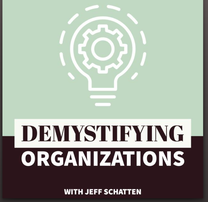Book Chapter: The Psychology of Big Data: Developing a “Theory of Machine”
New Working Paper: A Simple Explanation Reconciles “Algorithm Aversion” and “Algorithm Appreciation”: Hypotheticals vs. Real Judgments
New Working Paper: A Simple Explanation Reconciles “Algorithm Aversion” and “Algorithm Appreciation”: Hypotheticals vs. Real Judgments
What leads people to make inaccurate judgments?
When are they willing to use algorithms to improve their accuracy?
|
Jennifer M. Logg, Ph.D., is an Assistant Professor of Management at Georgetown University's McDonough School of Business. Prior to joining Georgetown, she was a Post-Doctoral Fellow at Harvard University and received her Ph.D. from the University of California, Berkeley’s Haas School of Business.
Her research examines why people fail to view themselves and their work realistically. It focuses on how individuals can assess themselves and the world more accurately by using advice and feedback produced by algorithms (scripts for mathematical calculations). She calls her primary line of research Theory of Machine. It uses a psychological perspective to examine how people respond to the increasing prevalence of information produced by algorithms. Broadly, this work examines how people expect algorithmic and human judgment to differ. Read more in her book chapter, The Psychology of Big Data: Developing a “Theory of Machine” to Examine Perceptions of Algorithms. She has been invited to speak on the topic of algorithms with decision-makers in the U.S. Senate, Air Force, and Navy. During her Ph.D., she was a collaborator on the Good Judgment Project, funded by IARPA, Intelligence of Advanced Research Projects Activity, the US intelligence community’s equivalent of DARPA. She served on the faculty committee that created the Masters of Science in Business Analytics at Georgetown University's McDonough School of Business. Currently, she is a Faculty Fellow at Georgetown University's AI, Analytics, and the Future of Work Initiative. She is also also a member of the "Theory of AI Practice" working group, funded by the Rockefeller Foundation through Stanford University's Center for Advanced Study in the Behavioral Sciences. |
Updates
A Simple Explanation Reconciles “Algorithm Aversion” and “Algorithm Appreciation”: Hypotheticals vs. Real Judgments
(Top 10 SSRN Download List in 3 Topic Categories within 1 month)
Risk Creep: A COVID-19 Longitudinal Field Study
(Top 10 SSRN Download List in 5 Topic Categories within 2 months)
Hybrid Intelligence: A Paradigm for More Responsible Practice
Stanford's Center for Advanced Study in the Behavioral Sciences White Paper
Research Awards
Algorithm Appreciation
- Ranked #1 in 2021 as "Most Cited Organizational Behavior and Human Decision Processes Articles Since 2018"
- Top 10% of authors on SSRN (by new downloads) 2017-Present
Is overconfidence a motivated bias?
- Early Career Award as judged by the Journal of Experimental Psychology's editors, from five sections (2019)
Teaching Awards
Top 50 Undergrad B-School Profs: Poets & Quants (2021)
Georgetown Career Champion: student nominated (2022)
A Simple Explanation Reconciles “Algorithm Aversion” and “Algorithm Appreciation”: Hypotheticals vs. Real Judgments
(Top 10 SSRN Download List in 3 Topic Categories within 1 month)
Risk Creep: A COVID-19 Longitudinal Field Study
(Top 10 SSRN Download List in 5 Topic Categories within 2 months)
Hybrid Intelligence: A Paradigm for More Responsible Practice
Stanford's Center for Advanced Study in the Behavioral Sciences White Paper
Research Awards
Algorithm Appreciation
- Ranked #1 in 2021 as "Most Cited Organizational Behavior and Human Decision Processes Articles Since 2018"
- Top 10% of authors on SSRN (by new downloads) 2017-Present
Is overconfidence a motivated bias?
- Early Career Award as judged by the Journal of Experimental Psychology's editors, from five sections (2019)
Teaching Awards
Top 50 Undergrad B-School Profs: Poets & Quants (2021)
Georgetown Career Champion: student nominated (2022)
|
Aug. 8, 2019
Algorithms as Magnifying Glasses: Using Algorithms to Understand the Biases in Your Organization Harvard Business Review |
|
Oct. 26, 2018
Stop Naming Your Algorithms: Do People Trust Algorithms More Than Companies Realize? Harvard Business Review |
|
May 10, 2019
Harnessing the Wisdom of Crowds: How Asking Multiple People for Advice Can Backfire Harvard Business Review |
|
Nov. 17, 2020
A Social Perspective of a Cognitive Bias: Overconfidence is Contagious Harvard Business Review |
Past Speaking Engagements
Click links for Talks, Papers, and Programs
Talk: Developing a "Theory of Machine"
Naval Applications of Machine Learning
NIWC Pacific Workshop
March 2024
Talk: A Simple Explanation Reconciles
“Algorithm Aversion” and “Algorithm Appreciation”:
Hypotheticals vs. Real Judgments
JDM Conference
San Francisco, CA
Nov 2023
Talk: Anticipated Preferences vs. Utilization of Algorithmic Advice
ACR Conference
Denver, CO
Oct 2022
Talk: Anticipated Preferences vs. Utilization of Algorithmic Advice
AOM Conference
Understanding the Future of Work
with Algorithms, AI, & Automation
Aug 6, 2022
Panel Webcast: Building Social Science into the Foundation of AI Practice
Invited Panelist
Produced by Stanford University's Center for Advanced Study in the Behavioral Sciences
June 14, 2022 @ 3pm Eastern
Summary
Video
Podcast
Talk: Pre-Registration: Weighing Costs and Benefits for Researchers
Invited Speaker
HEC Montreal Research Day on Replication and Open Science
April 5, 2022
Talk: Developing a "Theory of Machine"
Harvard University
Lerner Lab
April 8, 2022
Talk: Algorithmic Hiring
APA Conference
Advancing Human-AI Communication and Interaction Symposium
Invited Speaker
May 2022
Invited Panelist
Workshop on AI For Behavior Change
Talk: Developing a "Theory of Machine"
Invited Talk
Max Planck Institute
May 4, 2021
Talk: www.youtube.com/watch?v=xyDR9kQ5YDk
Talk: Algorithmic Hiring
Psychology of Technology
Algorithms and Decision-Making Session
Oct. 26, 2020
Talk: https://www.psychoftech.org/rising-stars-data-blitz
Talk: Algorithmic Hiring
Academy of Management
Aug. 10, 2020
Session: Algorithmic Decision Making
Talk: Using Algorithms to Detect Bias
Invited Talk
DC United (MLS Soccer)
July 21, 2020
Talk: Using Algorithms to Detect Bias
Invited Talk
Naval Applications of Machine Learning
NIWC Pacific Workshop
Feb. 24, 2020
Invited Interview (Information Collection Stage)
U.S. Senate
Oct. 18, 2019
Consumer Online Privacy Rights Act (COPRA) Bill Introduced 11.26.19
Overview of Bill
Talk: Algorithm Appreciation
Invited Talk, Postponed
Harvard University
Science Based Business Initiative
Co-Sponsored by Economics of Science & Engineering and
Technology & Operations Management
Click links for Talks, Papers, and Programs
Talk: Developing a "Theory of Machine"
Naval Applications of Machine Learning
NIWC Pacific Workshop
March 2024
Talk: A Simple Explanation Reconciles
“Algorithm Aversion” and “Algorithm Appreciation”:
Hypotheticals vs. Real Judgments
JDM Conference
San Francisco, CA
Nov 2023
Talk: Anticipated Preferences vs. Utilization of Algorithmic Advice
ACR Conference
Denver, CO
Oct 2022
Talk: Anticipated Preferences vs. Utilization of Algorithmic Advice
AOM Conference
Understanding the Future of Work
with Algorithms, AI, & Automation
Aug 6, 2022
Panel Webcast: Building Social Science into the Foundation of AI Practice
Invited Panelist
Produced by Stanford University's Center for Advanced Study in the Behavioral Sciences
June 14, 2022 @ 3pm Eastern
Summary
Video
Podcast
Talk: Pre-Registration: Weighing Costs and Benefits for Researchers
Invited Speaker
HEC Montreal Research Day on Replication and Open Science
April 5, 2022
Talk: Developing a "Theory of Machine"
Harvard University
Lerner Lab
April 8, 2022
Talk: Algorithmic Hiring
APA Conference
Advancing Human-AI Communication and Interaction Symposium
Invited Speaker
May 2022
Invited Panelist
Workshop on AI For Behavior Change
Talk: Developing a "Theory of Machine"
Invited Talk
Max Planck Institute
May 4, 2021
Talk: www.youtube.com/watch?v=xyDR9kQ5YDk
Talk: Algorithmic Hiring
Psychology of Technology
Algorithms and Decision-Making Session
Oct. 26, 2020
Talk: https://www.psychoftech.org/rising-stars-data-blitz
Talk: Algorithmic Hiring
Academy of Management
Aug. 10, 2020
Session: Algorithmic Decision Making
Talk: Using Algorithms to Detect Bias
Invited Talk
DC United (MLS Soccer)
July 21, 2020
Talk: Using Algorithms to Detect Bias
Invited Talk
Naval Applications of Machine Learning
NIWC Pacific Workshop
Feb. 24, 2020
Invited Interview (Information Collection Stage)
U.S. Senate
Oct. 18, 2019
Consumer Online Privacy Rights Act (COPRA) Bill Introduced 11.26.19
Overview of Bill
Talk: Algorithm Appreciation
Invited Talk, Postponed
Harvard University
Science Based Business Initiative
Co-Sponsored by Economics of Science & Engineering and
Technology & Operations Management







